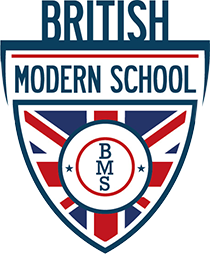This is a very crucial stage as it helps children get ready for school as well as prepare them for their future learning and successes. From birth until the age of 5, children early years experience should be happy, active, exciting, fun and secure; and support their development, care and learning needs.
Indeed, every child deserves the best possible start in life and the support that enables them to fulfil their potential. Children develop quickly and at an alarming rate in the early formative years and a child’s experiences between birth and five have a major impact on their future life chances. A secure, safe and happy childhood is important in its own right. Good parenting and high quality early learning together provide the foundation children need to make the most of their abilities and talents as they grow up. This is why we, at the BMS focus on strengthening home-school connections and maintaining a strategic partnership.
The BMS endeavour is to help kids enjoy learning in a safe, healthy, supportive and pressure free environment that smoothly help them make the transition from home to school. Such a smooth transition is done via Edutainment Approach, an approach which helps promote a positive attitude towards education in general and school in particular via full engagement and enjoyment. During these early formative years in which children develop rapidly and at an alarming rate (physically, intellectually, emotionally and socially), our target at the BMS is to help develop the kids’ all-round character, namely, cognitive, social, intellectual, emotional and motor abilities. This will be achieved via class learning, group learning, individual learning and free playing.
The EYFS Seeks to Provide:
- Quality and consistency in all early years settings, so that every child makes good progress and no child gets left behind;
- A secure foundation through learning and development opportunities which are planned around the needs and interests of each individual child and are assessed and reviewed regularly;
- Strategic partnership and strong home-school connections between teachers, school administration and parents
- Equality of opportunity ensuring that every child is included and supported.
EYFS Overarching Principles
Four guiding principles shape practice in early years settings at the BMS. They are:
- Every child is a unique child, who is constantly learning and can be resilient, capable, confident and self-assured;
- Children learn to be strong and independent through positive relationships;
- Children learn and develop well in enabling environments, in which their experiences respond to their individual needs and there is a strong partnership between practitioners and parents; and
- Children develop and learn in different ways and at different rates.
What EYFS Children Really Need

EYFS Areas Of Learning & Development
There are seven areas of learning and development that shape educational programmes in early years settings. All areas of learning and development are important and inter-connected. Three areas are particularly crucial for igniting children’s curiosity and enthusiasm for learning, and for building their capacity to learn, form relationships and thrive.

Your child will be learning skills, acquiring new knowledge and demonstrating their understanding through 7 areas of learning and development. Children should mostly develop the 3 prime areas first.These are:

These prime areas are those most essential for your child’s healthy development and future learning. As children grow, the prime areas will help them to develop skills in 4 specific areas

These 7 areas are used to plan your child’s learning and activities. The professionals teaching and supporting your child will make sure that the activities are suited to your child’s unique needs. This is a little bit like a curriculum in primary and secondary schools, but it is suitable for very young children, and it is designed to be really flexible so that staff can follow your child’s unique needs and interests. Children in the FS learn by playing and exploring, being active, and through creative and critical thinking which takes place both indoors and outside

